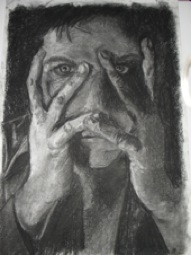A bipolar depressive episode occurs when for at least 2 weeks, the person experiences depressed bipolar mood (sadness or emptiness), or loss of interest or pleasure in things most of the time and at least 4 of the following:
- A lack of energy and tiredness
- Being slowed down or agitated and unable to settle
- Noticeable changes in appetite and weight
- Sleep problems (e.g. sleep too much or can’t fall asleep)
- Feelings of worthlessness and excessive guilt
- Difficulty in concentrating, thinking or making decisions
- Recurrent thoughts about suicide or death.
When a person is depressed, their symptoms are severe enough to be distressing or to affect their relationships, work or daily activities. Some people also experience psychotic symptoms such as delusions (strong beliefs that are not based on reality) or less frequently, hallucinations.
For more about dealing with bipolar depression or suicide risk in someone you care about see:
Please note that the people can have milder or fewer symptoms of bipolar depression rather than a full depressive episode (see if the person has ongoing mild symptoms of depression).

